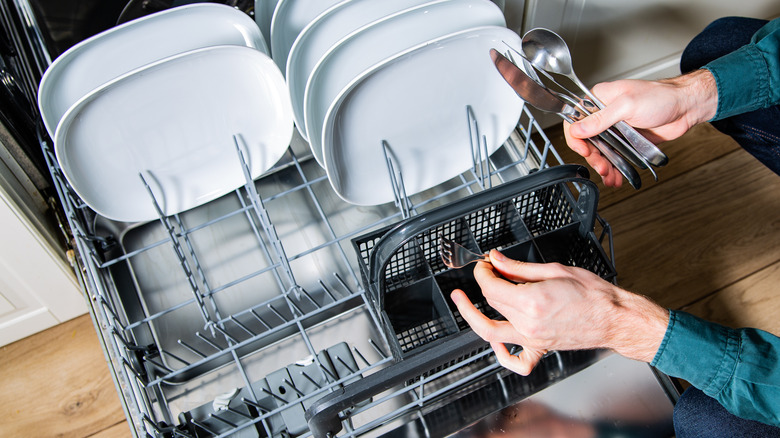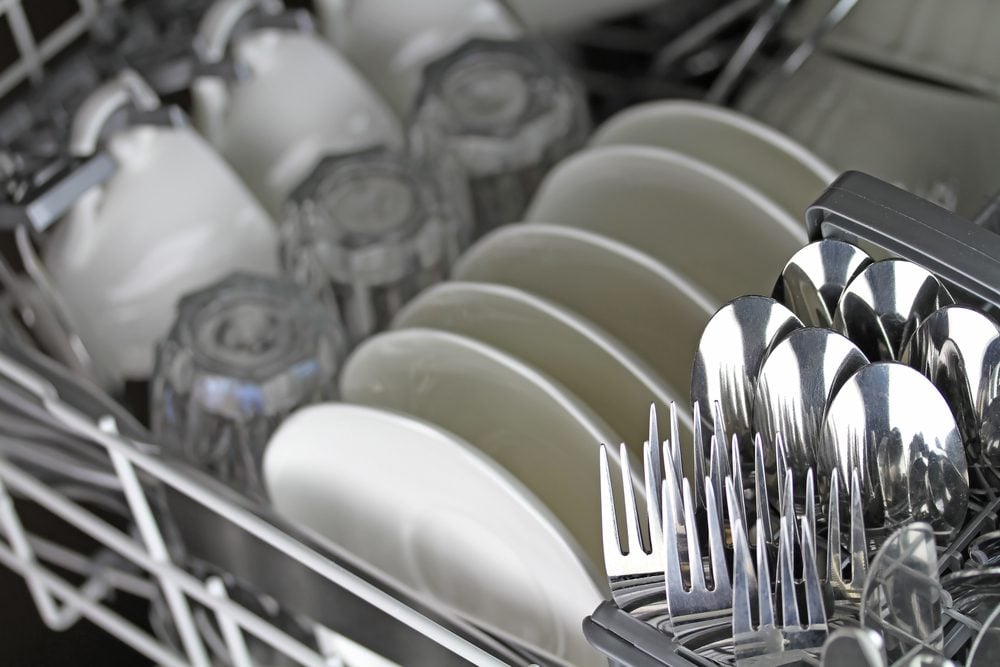How to Troubleshoot & Repair a Dish washer.
How to Troubleshoot & Repair a Dish washer.
Blog Article
Nearly everybody will have his or her own ideas when it comes to The Most Common Dishwasher Problems.

Having your dishwasher breakdown or breakdown can be a big deal and also trigger some discomfort in the house. Dish washers are machines that we make use of to clean dishes and also cutleries automatically to conserve us the anxiety of manually doing it.
Like every other machine that reduces human initiative, dishwashers can break down and also establish some fault at some time in time. There are numerous mistakes your dishwasher can establish, and while several of them can be resolved by changing some components or fixing them, various other much more extreme flaws will call for that you get a brand-new dishwashing machine.
This article will certainly determine a couple of typical mistakes your dishwashing machine might develop to prevent its overall efficiency as well as just how these faults can be addressed.
Typical Mistakes
Typical dish washer faults can range from small to significant ones. Depending upon the extent, you will either require the solutions of professional plumbers to deal with or replace it.
Some of one of the most typical faults consist of:
Leaking Dishwashing machine
This is probably one of the most daily dishwasher trouble, as well as the good news is that it is very easy to determine. Leaks take place because of several factors, as well as the leaks can ruin your kitchen area. Common root causes of dishwasher leakages include;
Bad-Smelling Dish washer
This is another typical dishwashing machine trouble, and it is generally caused by food debris or oil sticking around in the machine. In this situation, seek these particles, take them out as well as do the recipes without any dishes inside the maker. Clean the filter thoroughly. That will aid remove the bad odor. Make certain that you get rid of every food particle from your dishes prior to moving it to the equipment in the future.
Inability to Drain
Often you might notice a large amount of water left in your bathtub after a clean. That is possibly a drainage problem. You can either inspect the drainpipe tube for problems or blockages. When in doubt, get in touch with an expert to have it examined and also fixed.
Does not clean correctly
If your dishes and cutleries come out of the dishwashing machine as well as still look unclean or dirty, your spray arms might be a trouble. In many cases, the spray arms can obtain obstructed, and it will certainly require a quick tidy or a substitute to work successfully again.
Final thought
Several of these common dishwashing machine mistakes can be repaired quickly in the house, but sometimes, the mistakes could be enormous and also might require the focus of experts. If you live in Rochester, Syracuse, and also various other parts of America, let the specialists appropriately diagnose what could be incorrect with your dish washer and also extend an option.
We likewise set up dishwashing machines if you just bought a new one or plan to change your very own. With our several years of experience in the industry, we are sure to offer you the very best possible solutions.
7 Common Dishwasher Problems (and How to Fix Them)
Dirty, smelly, possibly covered in cheese. Is there anything more frustrating than opening the dishwasher only to find the dirty dishes are still there?! I mean, the main reason you buy a dishwasher is so you don’t have to deal with dirty dishes. C’mon dishwasher, you had one job.
A little maintenance goes a long way when it comes to appliances, but the truth is nothing lasts forever (sadly). That doesn’t mean it’s hopeless, though. With a handful of simple tricks, you can fix some of the most common dishwasher problems and bring that sparkle back into your dishwasher and back into your life.
My Dishes Are Still Dirty
This is at the top of a list for a reason. Dirty dishes are common and frustrating. Easy fixes first; check if your dishwasher has a manual filter and make sure that it’s clean and clear of debris. Then, as you load your dishwasher, make sure that the spray arms can rotate freely, spraying water throughout the drum. If they’re blocked or obstructed, you won’t be getting optimal cleaning performance. If the problem continues, check if your spray arms are clean and moving freely as grease and food particles can prevent them from spinning.
Also, stop pre-rinsing your dishes! Modern dishwashers use sensors to determine the soil level of the dishes. If you rinse them off too much, your dishwasher may select a shorter cycle than is necessary. Modern detergents also use enzymes that activate when they come in contact with food particles. If you remove the particles, your detergent will be less effective too.
My Dishes Aren’t Drying
The easiest fixes here are to add Rinse Aid to your dishwasher when you start the load to assist drying, and to make sure you don’t stack plastic against plastic or other hard to dry materials. It’s also a good idea to open the dishwasher door when the cycle is complete to release steam and prevent condensation from settling on your dishes (some higher-end machines even open automatically). If your dishwasher has a heating element, you may have to check if it is working properly. Check also the fan if your dishwasher has a stainless steel tub that uses blown radiant heat to dry.
My Dishwasher Smells Bad
If your dishwasher smells bad, make sure your filter and screens are cleaned of any grime and food residue. Check the spray arms and gasket on the door to make sure there’s no grease or food waste there as well. If you’ve done that, then it may just be time to sanitize the drum. Place a small bowl with vinegar in the upper basket of your empty dishwasher and run the sanitize cycle (or the hottest cycle you’ve got) to blast away bad odours.
My Dishwasher Won’t Start
If your dishwasher won’t start there’s often an electrical problem, and if you’re lucky that means there’s a very easy fix. Ask yourself, have I tried turning it off and on? If not, then do that. If it’s still not working, try unplugging and re-plugging in the machine and double-check your breaker to make sure power is feeding the unit. If it’s a mechanical problem, then it may be that your door isn’t latching properly and a simple realignment will get things sorted out.
My Dishwasher Won’t Fill
If possible, check your intake valves and make sure that the screen is clear and that there’s no blockage obstructing water flow. If that’s not it, then the float and/or float switch located at the bottom of the drum could be the problem. Make sure that the electrical connections are intact and that the mechanism hasn’t been damaged or blocked in any way.
https://www.wardells.ca/blog/7-Common-Dishwasher-Problems--and-How-to-Fix-Them-

I discovered that post on Common Dishwasher Problems while doing a search on the search engines. Be sure to take the time to share this blog entry if you appreciated it. Thank you for taking the time to read it.
Customer Reviews Report this page